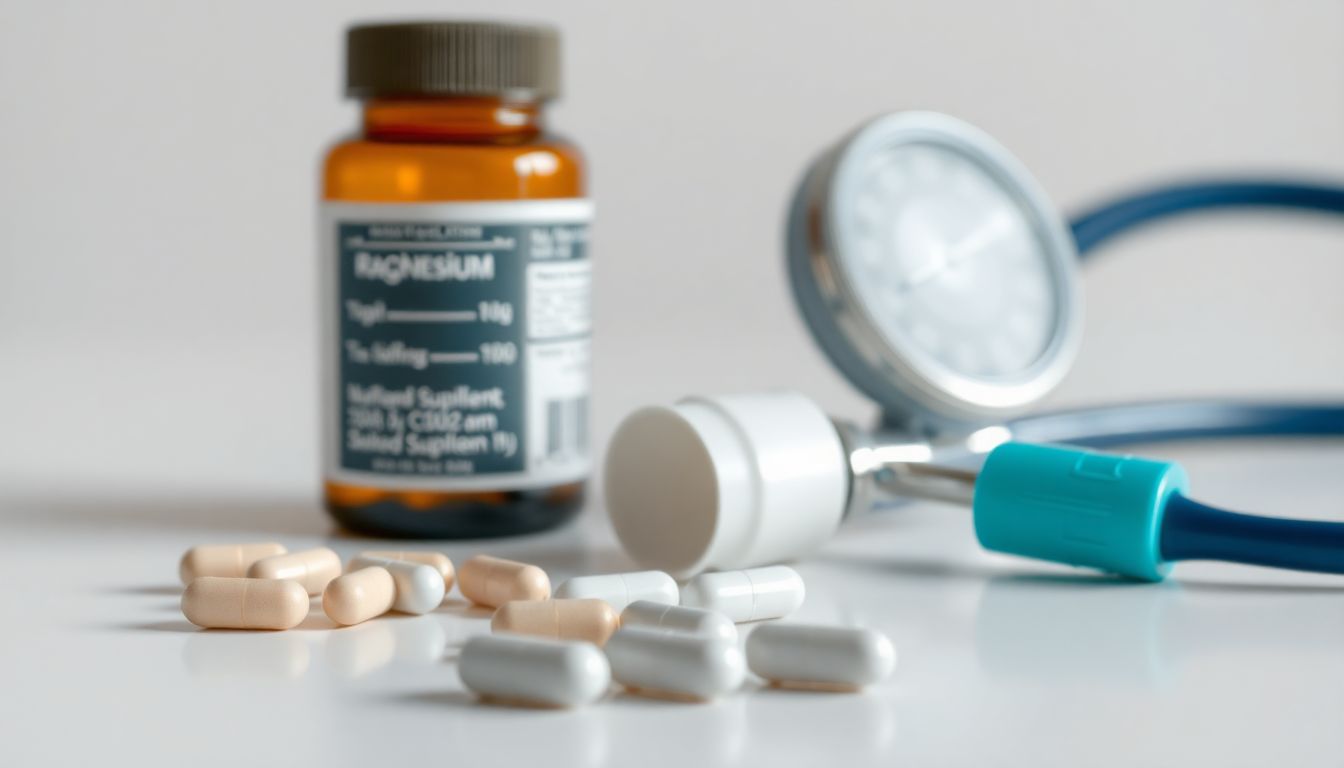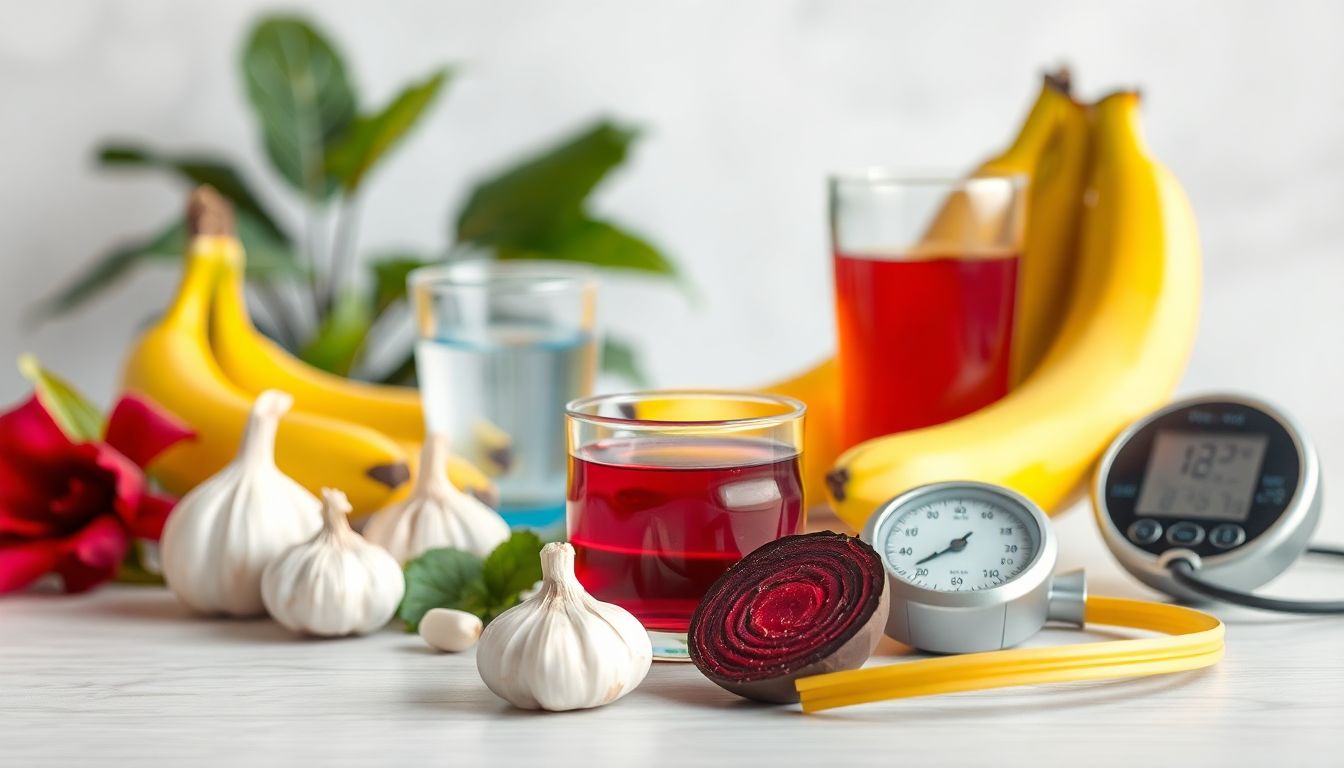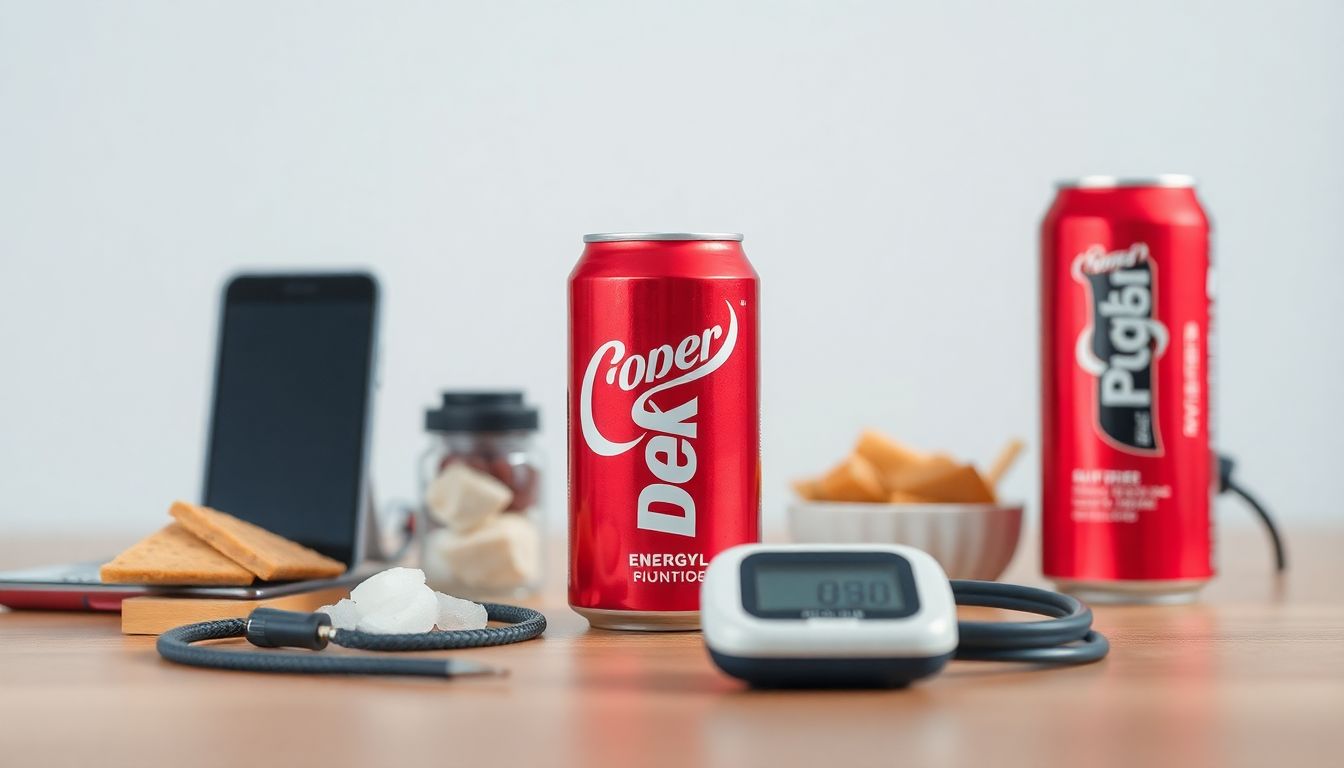If you’re taking prescription medication for high blood pressure, you might be wondering whether natural supplements can safely be added to your routine.
It’s a smart question — because while many natural ingredients support healthy blood pressure, some may interact with medications or enhance their effects.
In this article, we’ll explore:
- When supplements can be safely combined with medication
- Which ingredients to be cautious with
- How to talk to your doctor before adding a supplement
(Related Reading: The Complete Guide to Lowering Blood Pressure Naturally)
⚕️ Why People Combine Supplements and Medication
Many people use natural blood pressure supplements alongside medication to improve circulation, energy, and vascular health.
Some ingredients — like magnesium, CoQ10, and omega-3s — have been extensively studied and shown to support heart health without interfering with medication when used appropriately.
However, not all supplements are created equal.
Some herbs or minerals may alter how medications are absorbed or metabolized in your body.
Understanding the difference between safe support and potential conflict is key.
(Also read: Best Natural Supplements to Lower Blood Pressure)
⚠️ When It Might Not Be Safe
While most natural supplements are safe for general use, combining them with prescription medication can occasionally lead to interactions.
🚫 Common Scenarios to Watch For:
- Duplicate Effects
Some supplements have the same effect as your medication (for example, both lower blood pressure), which could cause your pressure to drop too low.
- Examples: Hibiscus, hawthorn, garlic, and CoQ10.
- Metabolism Interference
Certain herbal ingredients can alter how your liver processes medication — either intensifying or reducing its effect.
- Example: Grapefruit extract interferes with calcium channel blockers.
- Electrolyte Imbalance
Some diuretics prescribed for high blood pressure already deplete electrolytes like potassium and magnesium.
Adding supplements without supervision could cause imbalances.
🌿 Supplements Generally Considered Safe With Medication
Under professional guidance, the following supplements are typically well-tolerated:
| Supplement | Primary Benefit | Compatibility Note |
|---|---|---|
| Magnesium | Relaxes blood vessels, supports heart rhythm | Usually safe; avoid excess with diuretics |
| CoQ10 | Improves heart energy and antioxidant function | Can complement beta-blockers |
| Omega-3 fatty acids | Reduces inflammation and blood viscosity | Generally safe; monitor with blood thinners |
| Potassium (from food) | Balances sodium levels | Safe in food form, not high-dose supplements |
| Beetroot extract | Boosts nitric oxide for circulation | Safe in moderate doses |
💡 Tip: Choose doctor-formulated supplements that undergo clinical testing — like BP Zone® by Zenith Labs, which uses well-researched nutrients such as saffron, hibiscus, and CoQ10 in safe, balanced dosages.
🧠 How to Combine Safely
- Consult Your Doctor First
Always tell your healthcare provider about any supplement you plan to take. Bring the label to your appointment. - Start Slowly
Introduce only one supplement at a time and monitor your blood pressure regularly. - Avoid Overlapping Effects
Don’t mix multiple supplements that lower blood pressure without guidance — e.g., hibiscus, garlic, and beetroot together. - Choose Quality Over Quantity
Stick to reputable brands that meet cGMP standards and have third-party testing.
(Learn more: BP Zone® Review: Benefits, Ingredients, and Results)
❤️ When Supplements Can Help You Reduce Medication
Some people successfully use natural supplements alongside healthy lifestyle changes to reduce their dependence on medication (under medical supervision).
For instance, combining:
- The DASH diet,
- Daily exercise,
- Stress management, and
- A doctor-approved supplement
can lead to gradual improvements in blood pressure control — sometimes allowing for lower medication dosages.
(Also read: DASH Diet vs. Blood Pressure Supplements: Which Works Best?)
🧘♀️ Other Natural Remedies That Complement Medication
- Meditation and Breathing: Reduce stress hormones that raise blood pressure.
- Sleep Optimization: Poor sleep increases cortisol, leading to higher readings.
- Hydration and Movement: Keeping the blood thin and oxygenated supports vessel health.
(See also: How Stress Affects Blood Pressure (and Natural Remedies That Work))
❓ FAQs
- Can I take supplements with my blood pressure medication?
Yes, but always consult your doctor first. Some supplements can safely complement medication, while others may cause interactions. - Which supplements are safest with blood pressure medication?
Magnesium, CoQ10, and omega-3s are generally well-tolerated when used responsibly. - Can supplements replace my prescription drugs?
No. Supplements support healthy blood pressure but do not replace prescribed treatments. - Is hibiscus safe with medication?
Hibiscus may enhance the effect of medication, lowering blood pressure further — monitor closely with your doctor. - Are natural supplements regulated?
Not as strictly as prescription drugs, which is why choosing doctor-formulated, cGMP-certified brands is essential. - Can I take multiple blood pressure supplements at once?
It’s best to start with one at a time to avoid overlapping effects. - Can supplements interfere with diuretics?
Yes — high doses of magnesium or potassium may cause electrolyte imbalance if combined without supervision. - How long should I wait after taking my medication before supplements?
A gap of 2–3 hours between medication and supplements is often recommended, but confirm with your physician. - Do supplements help if I’m already on medication?
Yes, they can enhance heart energy, circulation, and recovery — when used under guidance. - Which supplement is best for heart and pressure support?
BP Zone® is a balanced, doctor-formulated option with ingredients that safely complement medications.
❤️ Final Thoughts
It’s absolutely possible to use natural blood pressure supplements safely alongside medication — as long as it’s done thoughtfully and under professional supervision.
The key is balance:
- Always inform your doctor.
- Choose clinically tested, well-formulated products.
- Monitor your progress regularly.
With the right combination of diet, movement, and smart supplementation, you can support your cardiovascular health naturally — without taking unnecessary risks.
(Also read: The Complete Guide to Lowering Blood Pressure Naturally)











